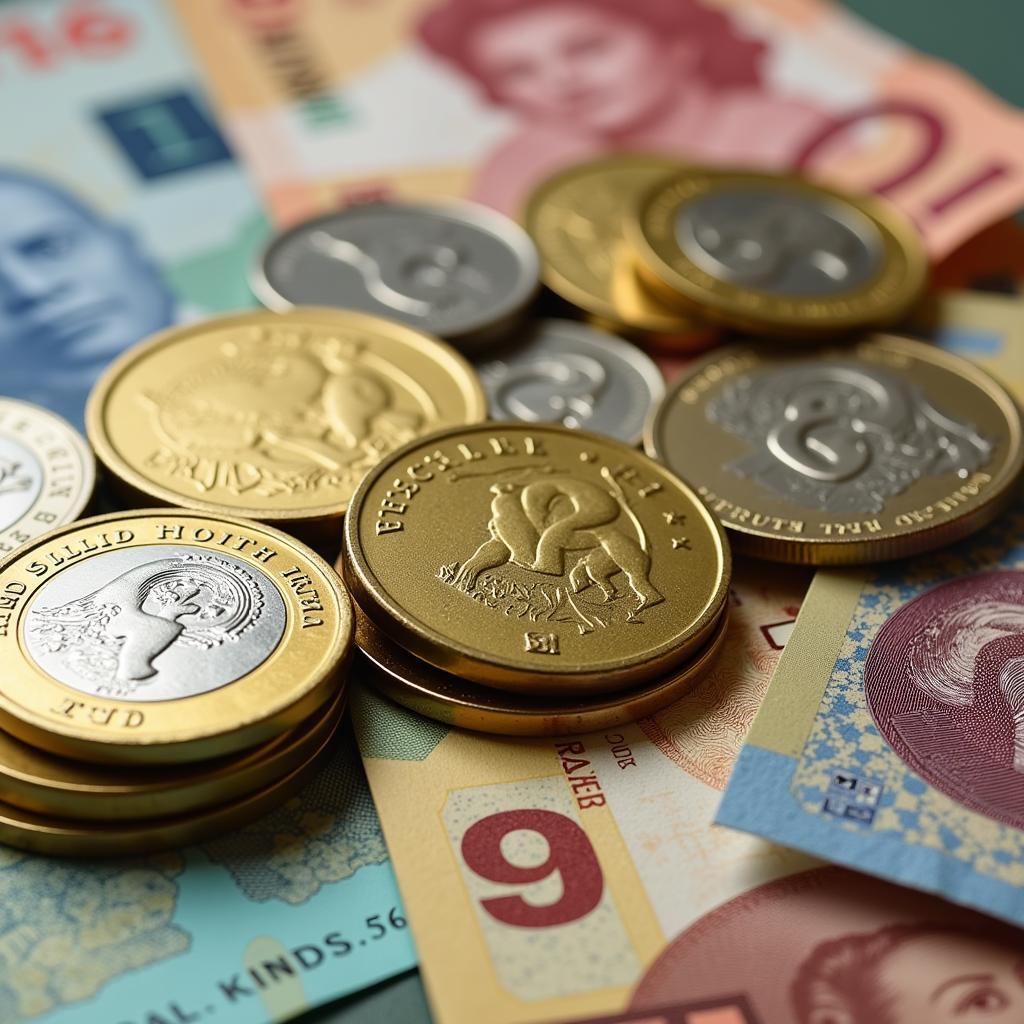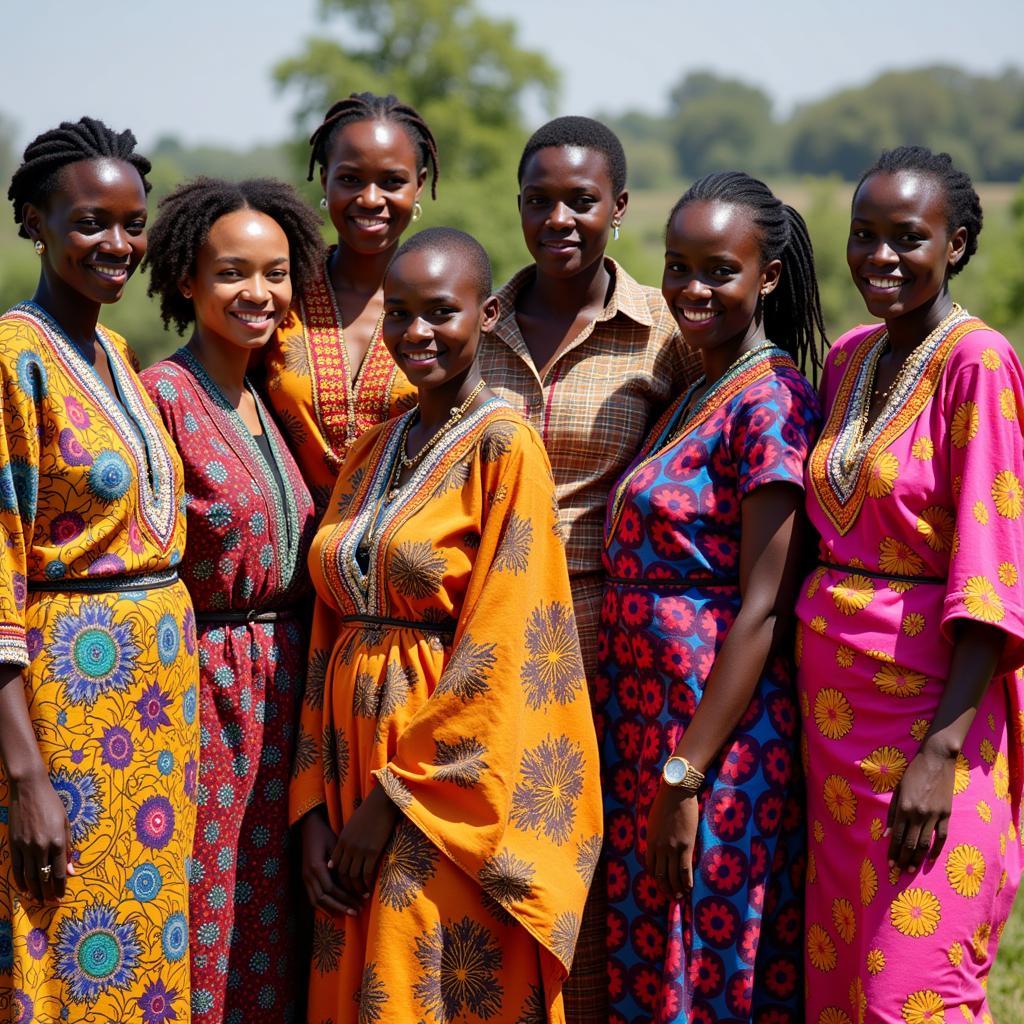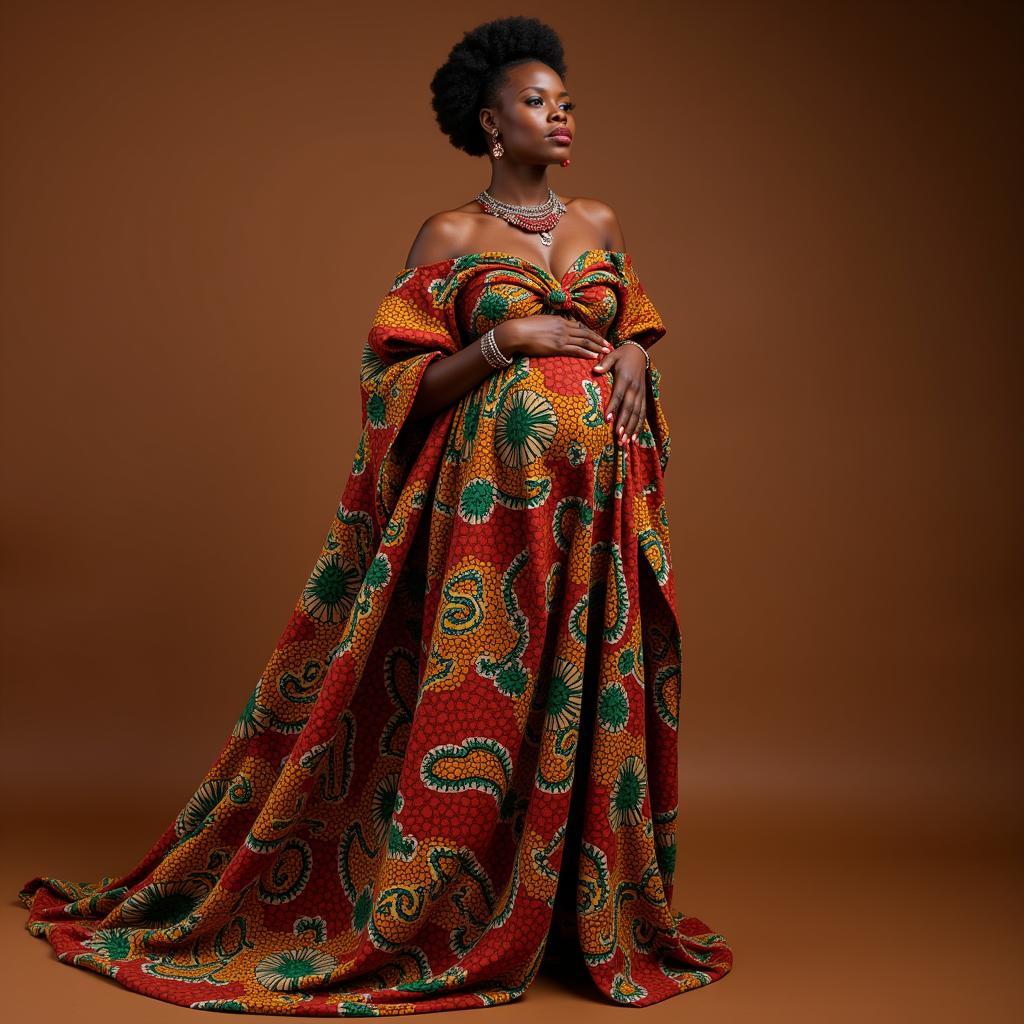African Coins and Currency: A Journey Through History and Diversity
African Coins And Currency offer a fascinating glimpse into the continent’s rich history, diverse cultures, and economic landscapes. From ancient trading beads to modern banknotes adorned with national symbols, the evolution of money in Africa reflects its journey through colonization, independence, and globalization.
A Rich Tapestry of Currencies
Today, there are over 50 independent countries in Africa, each with its own unique currency. These currencies reflect the continent’s linguistic and cultural diversity, with names often derived from local languages, historical figures, or significant landmarks.
 South African Rand Coins and Banknotes
South African Rand Coins and Banknotes
For instance, the South African Rand (ZAR) gets its name from the Witwatersrand, the region in South Africa known for its gold deposits. The Egyptian Pound (EGP), one of the oldest currencies in the world, dates back to the mid-19th century. Meanwhile, the West African CFA Franc, used by several Francophone countries in West Africa, reflects the lasting influence of French colonialism.
From Barter to Banknotes: A Historical Overview
Before the advent of coins and banknotes, trade in Africa thrived on barter systems. Various commodities, including salt, gold, beads, and livestock, served as mediums of exchange. Archaeological evidence suggests that cowrie shells were widely used as currency in many parts of Africa for centuries.
The introduction of coins came with the arrival of foreign traders and colonizers. The Greeks, Romans, and Arabs all left their mark on African coinage. During the colonial era, European powers imposed their own currencies, often tied to the value of their own currencies. This period saw the introduction of paper money and the gradual decline of traditional forms of currency.
Independence and the Rise of National Currencies
The wave of independence that swept across Africa in the mid-20th century led to the emergence of new national currencies. These currencies served as symbols of sovereignty and national identity. Many countries chose to retain the names of their colonial currencies but redesigned them to reflect their newfound independence.
Challenges and Opportunities in the Global Economy
African currencies have faced numerous challenges in the global economy, including inflation, volatility, and debt burdens. Fluctuations in commodity prices, particularly for oil and minerals, often have a significant impact on African economies.
However, there are also opportunities for growth and innovation. The rise of mobile money in Africa has revolutionized financial inclusion, particularly in rural areas. Several countries are exploring the potential of digital currencies and blockchain technology to enhance financial stability and transparency.
Exploring African Coins and Currency
Collecting African coins and banknotes can be a rewarding hobby, offering insights into the continent’s diverse history and cultures. From rare colonial-era coins to modern commemorative banknotes celebrating national milestones, there is a vast and fascinating world to discover.
FAQs about African Currencies
What is the strongest currency in Africa?
The currencies of Libya, Seychelles, and Tunisia are currently considered among the strongest in Africa.
What is the most common currency in Africa?
The South African Rand (ZAR) is the most traded currency in Africa.
Are there any shared currencies in Africa?
Yes, several countries in West and Central Africa share the CFA Franc, while East African countries are working towards a common currency.
Can I use US dollars or Euros in Africa?
While US dollars and Euros are widely accepted in some tourist areas, it is generally advisable to use local currencies for transactions.
Discover More About African Life
Interested in delving deeper into the rich tapestry of African culture and heritage? Explore more fascinating articles on our website:
From the vibrant colors of traditional textiles to the rhythmic beats of African music, there’s a world of discovery awaiting you.
Need assistance? Contact us at:
Phone Number: +255768904061
Email: kaka.mag@gmail.com
Address: Mbarali DC Mawindi, Kangaga, Tanzania.
We have a 24/7 customer support team ready to help.




